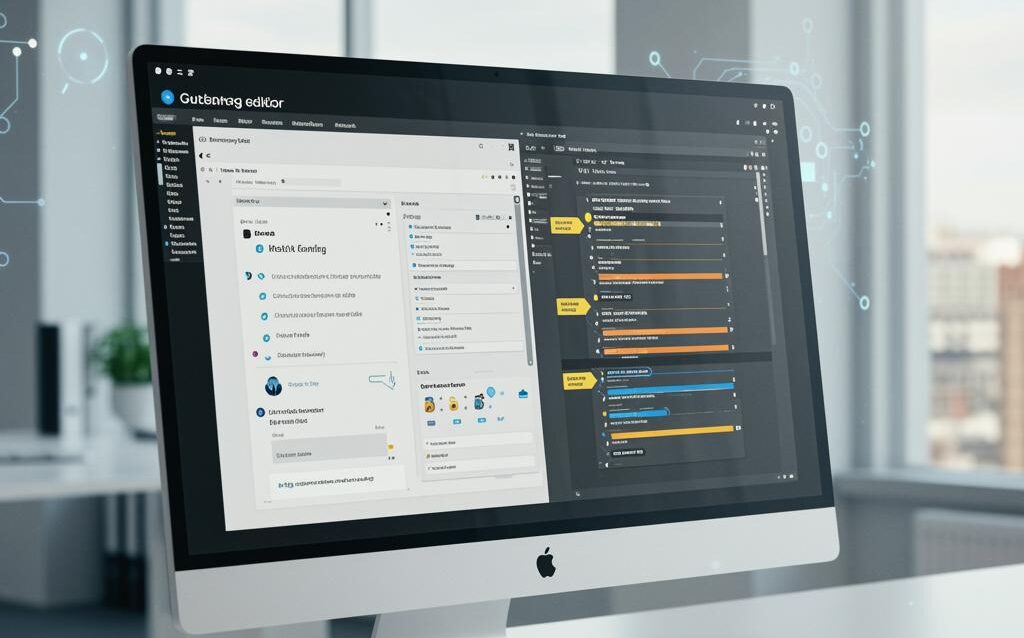Gutenberg vs Classic Editor: WordPress Editing in 2025
Gutenberg vs. Classic Editor: The State of WordPress Editing in 2025
The WordPress editing landscape has been in constant evolution since the introduction of Gutenberg (now the Block Editor). As we look towards 2025, it’s crucial to understand the current state of both Gutenberg and the Classic Editor, their respective strengths and weaknesses, and how they’re shaping the future of content creation within WordPress. This post will explore these aspects, providing practical insights for users navigating this dynamic environment.
The Reign of Gutenberg: Dominance and Evolution
By 2025, Gutenberg will undoubtedly be the dominant editing experience within WordPress. The core development team has heavily invested in its growth, making it the default editor for new installations. Its block-based approach offers unparalleled flexibility in designing layouts and structuring content. Expect to see further refinements in:
- User Interface and User Experience (UI/UX): Continued improvements in usability, making it more intuitive for both novice and experienced users.
- Block Ecosystem: A thriving marketplace of third-party blocks, expanding functionality beyond the core offerings. We’ll see more specialized blocks for specific niches, like e-commerce, education, and multimedia.
- Performance Optimization: Enhanced loading speeds and reduced resource consumption, addressing past concerns about Gutenberg’s impact on website performance.
- Collaboration Features: More robust real-time collaboration tools, allowing multiple users to work on the same content simultaneously.
However, the dominance of Gutenberg doesn’t mean the Classic Editor is entirely obsolete. Many users still prefer its familiar interface and workflow.
The Classic Editor: A Legacy Option with Niche Appeal
While Gutenberg is the future, the Classic Editor will likely remain available as a plugin, catering to users who:
- Prefer a Simple, WYSIWYG Interface: Some users find the Classic Editor’s simplicity more appealing, especially for basic content creation.
- Rely on Specific Plugins: Certain older plugins may not be fully compatible with Gutenberg, requiring users to stick with the Classic Editor.
- Maintain Legacy Websites: Sites built with the Classic Editor may be difficult and time-consuming to migrate to Gutenberg, making it more practical to stick with the original editor.
However, it’s important to note that the Classic Editor will likely receive minimal updates and support from the WordPress core team. This means users will need to rely on third-party plugins for maintenance and security fixes.
Plugin Compatibility and the Rise of Hybrid Approaches
A crucial aspect of the Gutenberg vs. Classic Editor debate is plugin compatibility. By 2025, most reputable plugin developers will have fully embraced Gutenberg, creating blocks that seamlessly integrate with the block editor. However, some plugins may continue to offer Classic Editor compatibility, either through separate versions or through features that work within both environments.
We’ll also see the rise of hybrid approaches, where users can choose to edit specific pages or posts with either Gutenberg or the Classic Editor, depending on their needs. This allows for a more flexible workflow, leveraging the strengths of both editors.
Choosing the Right Editor for Your Needs: A Practical Guide
Selecting the right editor depends on several factors:
- Your Comfort Level: Are you comfortable learning new interfaces and workflows? If not, the Classic Editor might be a better starting point.
- The Complexity of Your Content: For simple blog posts, the Classic Editor might suffice. However, for complex layouts and designs, Gutenberg offers more flexibility.
- Plugin Compatibility: Ensure that your essential plugins are compatible with your chosen editor.
- Future-Proofing: Gutenberg is the future of WordPress editing. Learning it now will prepare you for the long term.
Practical Tip: Experiment with both editors to see which one best suits your needs. Consider building a test site to explore Gutenberg’s features and capabilities without affecting your live website.
The Future of WordPress Editing: Beyond Gutenberg and the Classic Editor
Looking beyond 2025, we can expect to see further advancements in WordPress editing, potentially including:
- AI-Powered Content Creation: Integration with AI tools that can assist with writing, editing, and layout design.
- Low-Code/No-Code Solutions: More intuitive visual builders that allow users to create complex websites without writing code.
- Enhanced Accessibility Features: Improved tools for creating accessible content that is usable by people with disabilities.
The evolution of WordPress editing is ongoing. Staying informed about the latest developments and adapting to new technologies will be crucial for success in the years to come.
Conclusion
In 2025, Gutenberg will be the dominant force in WordPress editing, offering a powerful and flexible platform for content creation. While the Classic Editor will remain an option for some users, its long-term viability is uncertain. By understanding the strengths and weaknesses of both editors, and by staying informed about future developments, WordPress users can make informed decisions about their editing workflow and create compelling content that meets their needs.
“`

